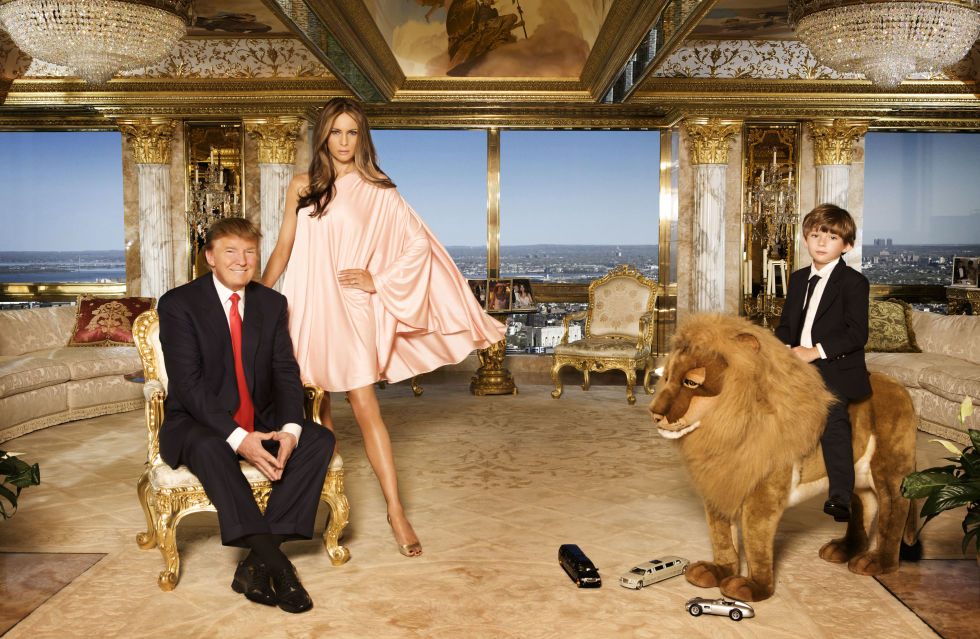A phrase I began using (overusing) in 2015 is “the American people won’t forever settle for bread and Kardashians.” That played out in a shockingly horrible fashion when Donald Trump, a Simon Cowell-ish strongman, was elected to the highest office of the land (with, it would appear very likely, the cooperation of the Kremlin).
The non-treasonous means he employed to win were to move the GOP far to the right on some issues and to the left on others. In the latter category, his promises were more than just the usual election-year exaggerations–they were the cruelest lies. Trump has no interest in extending and improving healthcare or preserving Medicare or Social Security. He’s the iceman cometh, intent on policies that would literally kill off swaths of his base.
In a Vox Q&A, David Frum questions Edward Luce about his new book, The Retreat of Western Liberalism. The interviewer wonders if the economic problems in the U.S. and UK can be cured in the short run by three measures: thicker social insurance, less dynamic labor markets and less immigration. The first would be helpful, the second unrealistic and the third a very bad idea. Unskilled immigrants do the jobs Americans will not do. Entrepreneurs, engineers and scientists from abroad create jobs and propel progress. International students welcomed into our universities often pay full tuition so that less-privileged U.S. students don’t have to. Refusing this bounty from beyond our borders would be a self-inflicted wound, a brain-drain that would make us poorer and less secure.
One exchange:
David Frum:
We talked earlier about the role of elite demophobia as you called it, oikophobia as you called it. The book bears on its cover an endorsement from Larry Summers, and on its back are others of the great and good. This is not written for the talk radio audience. It is written for the Davos inhabitants whom you scorn on the inside of the book.
What is the summons to the people who are doing well in the present dispensation here? What do you think are their responsibilities? How do you persuade them to think in a larger, longer-term way than they seem to be doing right now?
Edward Luce:
I totally agree with the supposition of your question, and I’ve thought about this. I’ve thought about the fact, well who’s my book going to be read by? Who’s the Financial Times read by? It’s not typically read by the left-behinds. The same goes for Vox and the Atlantic.
But actually, this is the relevant market, and my book is written for what I think are still — in spite of everything that has happened — the complacent elites in our society. One of the pieces of evidence of their complacency is this tendency to talk about the other half as deplorable, and to mark them off. This is not a sign of thinking. It is not a sign of addressing what I think are addressable problems.
So what would I recommend for converting elites to the point of view I’m trying to argue?
To recognize that if you live, as we increasingly do, in a sort of modern-day Versailles, eventually that palace gets burnt down. You cannot wall yourself off from the people in society. There’s no Hunger Games that ends well.
And to recognize that your wealth comes from society. It has a social basis, however individually talented you are. You would not be wealthy if it weren’t for society. You can fantasize about living in gated communities that have robots as security guards, and drones delivering your goods, and, you know, no humans actually employed. But they’re still there, and they’re going to make life difficult for you. You’re not going to be sleeping well at night.
That’s the scare-the-kids version. The better way of putting that is to appeal to people’s enlightened self-interest. I continue to believe America is a country that can lead the world in enlightened self-interest. Take the Marshall Plan: America is the country that coined the term pragmatism. That’s an American philosophy. I don’t think it’s dead, but I think it’s not something the elites are as familiar with as they should be, and must be.•
Tags: David Frum, Edward Luce

